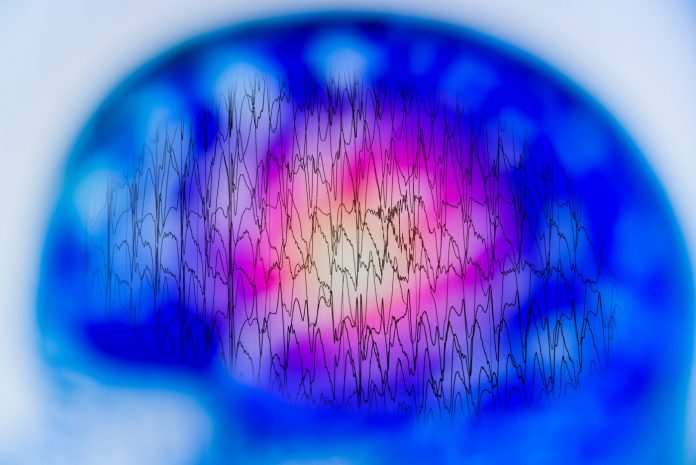
A study led by researchers at University College London (UCL) reveals that slow waves, typically associated with the brain’s sleep state, can also occur during wakefulness in individuals with epilepsy. These wakeful slow waves appear to act as a natural protective mechanism against the heightened brain excitability linked to epileptic conditions.
Published in Nature Communications and conducted in collaboration with the National Institute for Health and Care Research (NIHR) UCLH Biomedical Research Centre, the research employed electroencephalogram (EEG) scans to monitor brain activity in 25 patients with focal epilepsy. These individuals, who experience seizures originating from specific areas of the brain, participated in an associative memory task while researchers observed the real-time impact on brain function.
The study’s senior author, Matthew Walker from UCL Queen Square Institute of Neurology, explained, “Recent studies have indicated that a specific form of brain activity, slow waves during sleep, play a crucial role in these restorative functions. We wanted to address whether these ‘sleep’ slow waves could occur during wakefulness in response to abnormal increases in brain activity associated with epilepsy.”
During the memory task, participants were presented with pairs of images and asked to recall which ones were grouped together. Intriguingly, the EEG data revealed the presence of wakeful slow waves lasting less than a second. The occurrence of these waves correlated with increased brain excitability, suggesting a potential protective mechanism against epileptic spikes.
The researchers observed a notable reduction in nerve cell firing during wakeful slow waves, indicating a potential safeguard against epileptic activity. Professor Walker emphasized the significance of this finding, stating, “This study unveils, for the first time, a potential protective mechanism, ‘wake’ slow waves, employed by the brain to counteract epileptic activity.”
However, the study also addressed the impact of wakeful slow waves on cognitive function. During the memory task, researchers noted a decrease in nerve cell activity, leading to longer reaction times for patients. For each increase of one slow wave per second, the reaction time increased by 0.56 seconds. This observation suggests that the cognitive difficulties experienced by individuals with epilepsy, particularly memory deficits, may be partially attributed to the impairments induced by these wakeful slow waves.
Lead author Laurent Sheybani, Ph, highlighted the parallel between the function of slow waves during sleep and their beneficial impact in pathological conditions. He stated, “Our study suggests that a naturally occurring activity is employed by the brain to offset pathological activities; however, this comes with a price, since ‘wake’ slow waves are shown to impact on memory performance.”
The researchers envision future studies exploring the manipulation of this wakeful slow wave activity as a potential novel treatment for people with epilepsy. As our understanding of the brain’s intricate mechanisms continues to deepen, these findings open new avenues for therapeutic interventions that leverage the brain’s innate capabilities to counteract the challenges posed by epilepsy.













